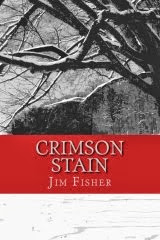POLICING: Modern law enforcement has become too militarized. There are too many SWAT teams and pre-dawn, no-knock drug raids into private dwellings occupied by children and other innocent people. Offices see themselves as crime warriors instead of public servants. Another unrelated problem involves powerful police unions that keep bad cops on the job.
FORENSIC SCIENCE: The nation's crime laboratories are in a state of crisis. Due to budget restraints and a shortage of qualified personnel, these facilities are overwhelmed with evidence submissions which has created serious backlogs, sloppy work, contaminated evidence, and identification mistakes. Crime labs and crime lab units all over the country are being shut down due to inferior work. With criminal investigation being a low law enforcement priority, the crime lab problem is not about to be fixed any time soon. (There is also a critical shortage of forensic pathologists in the country.)
CORRECTIONS: Because judges won't allow prison overcrowding, and there is no money to expand our prison infrastructure, we have more criminals than places to put them. In California and other states, pedophiles, rapists, and other violent criminals who should be locked-up are walking free to make room for the drug offenders. In Massachusetts, instead of new prison space, taxpayers are funding an inmate's sex-change operation. Our prison system has become a national disgrace. (In New Orleans recently, a prisoner-produced video shows inmates doing drugs and walking around with handguns.)
CRIMINAL INVESTIGATION: Because of the government's preoccupation with heavily armed street patrol, the never-ending drug war, and anti-terrorism, criminal investigation in this country is becoming a lost art. While national crime rates have steadily decreased, more and more homicide and sexual offense cases are being bungled or ignored. The combination of poor crime lab services and the fact detective bureaus across the country are being cut has led to a significant decline in crime solution rates.
CRIMINAL LAW: Virtually every form of criminal behavior is now a federal offense. The central government has become too involved in criminal justice matters that should be left to the states. We are creating a national police force which is contrary to the principles of freedom and limited government. Moreover, state crime codes have become cluttered with unnecessary, politically-motivated window-dressing laws that pander to various minority groups. The entire hate-crime movement is an example of this form of over-legislation.
CRIMINAL COURTS: The nation's prosecutors, state and federal, are overwhelmed with drug cases that clog the dockets and force the government into plea-bargain deals that do not always serve the public interest. More than 90 percent of convictions in this country are the result of bargained guilty pleas.
FORENSIC SCIENCE: The nation's crime laboratories are in a state of crisis. Due to budget restraints and a shortage of qualified personnel, these facilities are overwhelmed with evidence submissions which has created serious backlogs, sloppy work, contaminated evidence, and identification mistakes. Crime labs and crime lab units all over the country are being shut down due to inferior work. With criminal investigation being a low law enforcement priority, the crime lab problem is not about to be fixed any time soon. (There is also a critical shortage of forensic pathologists in the country.)
CORRECTIONS: Because judges won't allow prison overcrowding, and there is no money to expand our prison infrastructure, we have more criminals than places to put them. In California and other states, pedophiles, rapists, and other violent criminals who should be locked-up are walking free to make room for the drug offenders. In Massachusetts, instead of new prison space, taxpayers are funding an inmate's sex-change operation. Our prison system has become a national disgrace. (In New Orleans recently, a prisoner-produced video shows inmates doing drugs and walking around with handguns.)
CRIMINAL INVESTIGATION: Because of the government's preoccupation with heavily armed street patrol, the never-ending drug war, and anti-terrorism, criminal investigation in this country is becoming a lost art. While national crime rates have steadily decreased, more and more homicide and sexual offense cases are being bungled or ignored. The combination of poor crime lab services and the fact detective bureaus across the country are being cut has led to a significant decline in crime solution rates.
CRIMINAL LAW: Virtually every form of criminal behavior is now a federal offense. The central government has become too involved in criminal justice matters that should be left to the states. We are creating a national police force which is contrary to the principles of freedom and limited government. Moreover, state crime codes have become cluttered with unnecessary, politically-motivated window-dressing laws that pander to various minority groups. The entire hate-crime movement is an example of this form of over-legislation.
CRIMINAL COURTS: The nation's prosecutors, state and federal, are overwhelmed with drug cases that clog the dockets and force the government into plea-bargain deals that do not always serve the public interest. More than 90 percent of convictions in this country are the result of bargained guilty pleas.





